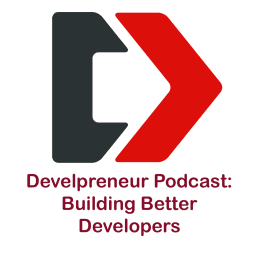In the latest podcast episode, we explored the crucial topic of organizing business documentation—a challenge every entrepreneur faces, particularly in the tech industry. As we approach the season’s end, we reflect on balancing working on your business and in your business. This episode delved into maintaining effective organization to ensure an efficient and productive workflow.
The Perennial Struggle with Organizing Business Documentation
One perennial struggle entrepreneurs face is balancing building their brand/business and performing paid work. This balancing act involving client-facing tasks and backend organizational work can be challenging. As we hit mid-year, it’s timely to reassess and reorganize, just as we do at the start of the year or during spring cleaning.
Organizing Digital Spaces
We discussed the importance of periodically reviewing and organizing our digital spaces, akin to clearing lockers at the end of the school year. As responsibilities grow, we must proactively create organizational rhythms in our professional lives. For those in tech, this often means managing documentation, code, emails, and project materials.
Using Version Control to Organizing Business Documentation
In software development, we have the luxury of version control for our code, ensuring it’s easily searchable and well-organized. However, other materials like emails, status reports, design documents, and demo write-ups often get lost in the shuffle. Though seemingly secondary, these materials are crucial for future reference and can save us considerable time and effort if appropriately organized.
Expert Tips for Organizing Business Documentation
Key takeaways included:
- Have a centralized documentation repository (Confluence, shared drive, etc.)
- Include how-to guides, setup instructions, and standards as one-page cheat sheets.
- Regularly review document storage to ensure proper filing.
- Use bookmark managers to organize research/references efficiently.
- Utilize tools like Calibre to manage digital book/article collections.
- Leverage cloud storage solutions for accessibility.
Regular Reviews
A key strategy is regular, scheduled reviews of your digital workspace. Setting aside weekly time to clear your desk, review priorities, and plan can significantly reduce stress and increase productivity, ensuring you stay on top of tasks.
Effective organization prepares you for future tasks and ensures quick access to needed information/resources. Implementing these strategies allows entrepreneurs to balance better working on their business with working in their business, leading to greater efficiency and success.
Stay Connected: Join the Developreneur Community
We invite you to join our community and share your coding journey with us. Whether you’re a seasoned developer or just starting, there’s always room to learn and grow together. Contact us at [email protected] with your questions, feedback, or suggestions for future episodes. Together, let’s continue exploring the exciting world of software development.


[…] Organizing Business Documentation: A Critical Challenge for Entrepreneurs […]
[…] Organizing Business Documentation: A Critical Challenge for Entrepreneurs […]